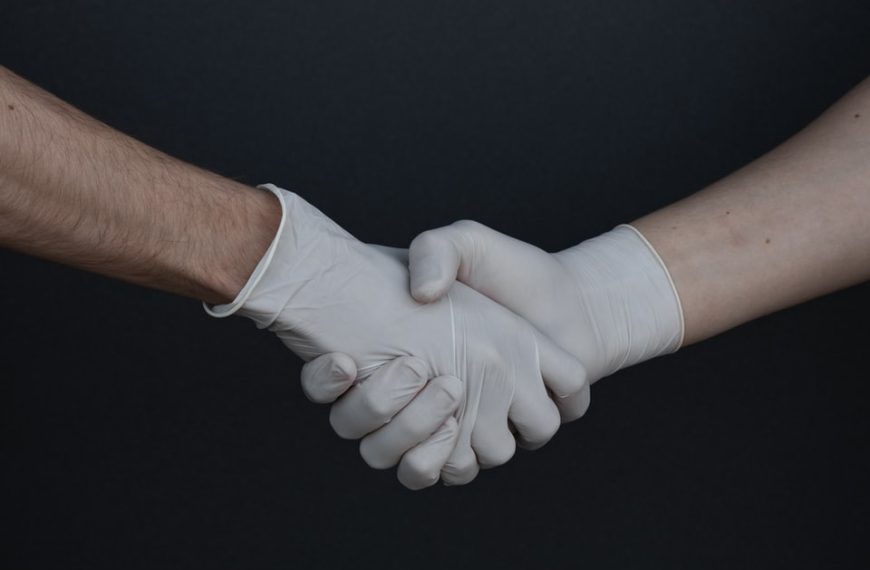New data analysis from Preventx shows Trichomonas vaginalis (TV) positivity rates are disproportionately high amongst some Racially Minoritized Communities and deprived communities, across England.
TV causes the condition called trichomoniasis, where women experience painful urination (dysuria), vulval itching and discomfort, vaginal discharge, and offensive odor. If left untreated, the infection can cause complications in pregnant women, including low birth weight and early birth. Those infected with TV are also more likely to acquire HIV infection after exposure. Men with trichomoniasis can experience painful urination or urethral discharge; it is usually a milder, more transient infection than in women.
The new data analysis from remote sexual health testing provider Preventx, shows a 5.2% positivity rate in women from Black, Black British, Caribbean, or African background who were experiencing vaginal discharge – an established symptom of TV. This is significantly higher than the 3.4% positivity rate recorded in white British women and 3.5% positivity rate across all women. TV also disproportionately affects asymptomatic women from Black, Black British, Caribbean, or African background, with a positivity rate more than twice that of asymptomatic white British women (2% vs 0.8%).
For the first time, the researchers also looked at the relationship between TV positivity rates and levels of deprivation. The team also looked at TV rates with the lowest IMD quintiles – a measure of relative deprivation for fixed geographic areas of the UK. They found that the lowest quintile had higher levels of TV than other communities, with a 5.9% TV positivity rate in symptomatic women. This is significantly higher than the 1.4% seen in the least deprived quintile. People without any symptoms from the most deprive quintiles are also three times more likely to test positive for TV than other asymptomatic groups (2.7% vs 0.8%).
We’ve always known that TV was a common infection in London, but our new data shows worryingly high positivity rates elsewhere across England, with certain communities more affected than others.
To address this problem, we are calling for more data to be collected about TV across the UK to help us understand more about regional prevalence and for areas with high positivity rates to use Nucleic Acid Amplification Tests – which can be carried out by symptomatic and asymptomatic women and have been shown to have the highest accuracy rates – to screen service users for the infection. These tests can be carried out remotely using Preventx testing kits and will allow us to address the consequences of undiagnosed TV and reduce transmission. This also aligns with the newly released British Association for Sexual Health and HIV (BASHH) Guideline for the Management of Trichomonas vaginalis, which calls for improved testing.
TV can usually be treated with antibiotics but increasing rates of treatment failure make it important for testing to be performed after treatment. This can be done easily by online testing too. Testing and treating sexual partners is also vital to prevent reinfection. Online testing offers an easy way for this to be achieved, especially for those who might not want to attend a clinic.
Dr John White, Medical Director at Preventx and Consultant Physician in Sexual Health and HIV working in the Western and Northern Health & Social Care Trusts, Northern Ireland.
High-quality TV testing is not yet carried out as standard in England and other parts of the UK, but it is known to be far more common than gonorrhoea (NG) globally, which is routinely tested for. The study team compared the two infections and found that 3.5% of women with symptoms tested positive with TV compared to only 0.6% for gonorrhoea, underlining the need for more high-quality testing for TV.
The new analysis was carried out by Preventx, the largest provider of remote sexual health testing in the UK and presented at the BASHH Annual Conference. The study team conducted a retrospective analysis of data gathered from remote STI tests of 8,676 women from six English local authority areas, providing new insight into TV.
Remote testing from Preventx offers an accurate and easy way to diagnose TV in asymptomatic and symptomatic women – using Nucleic Acid Amplification Tests (NAATs) that are far more sensitive than the tests usually offered in clinics, with no additional requirements for patients. This also improves access for more people. These high-quality NAATs are not currently used as standard in sexual health clinics. Once diagnosed, TV can usually be easily treated with antibiotics.
Preventx works in partnership with over 70 NHS local authorities to provide safe and convenient remote STI tests. Since launching, Preventx has issued over 4 million tests kits to people across the UK, which equates to 10 million individual tests.
“With conventional testing TV can go undiagnosed, and it’s important we find new ways to help people who could be carrying this infection. Working with Preventx, we used a symptomatic triage pathway to support women with mild symptoms of an STI to test at home, including TV NAAT testing. This allowed us to effectively diagnose and support women with TV. Remote testing fast and convenient for people and it has freed up capacity in our clinics to see the people that need to be seen.”
“Since working with Preventx to provide remote NAAT testing for people with symptoms, we have seen a surprisingly higher percentage of people diagnosed with TV. This has allowed us to diagnose and treat more women in Kent.
“Without this high-quality testing, reservoirs of TV infection will remain undiagnosed.”
Dr Lesley Navaratne, Clinical Director for Integrated Sexual Health Services, Maidstone and Tunbridge Wells NHS Trust, and member of the team behind the study.




